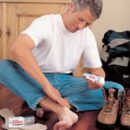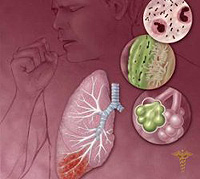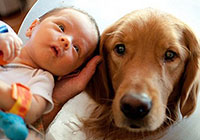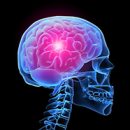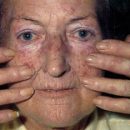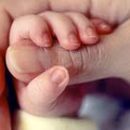How to diagnose congenital heart defects? What surveys need to make a child with suspected heart disease? What is the catheterization of the heart and why it is needed? Read in this article.
Content
How a cardiologist diagnoses heart disease
As a rule, heavy UPU is diagnosed in early childhood. But essential vices can be detected and later. In some cases, vices remain unnoticed to adolescent or even before adult.
If serious difficulties are connected with the heart. Your doctor can advise to contact a specialist in the diagnosis and treatment of heart disease in babies, children and adolescents. Children's cardiologist has appropriate qualifications and equipment for conducting, if necessary, regular inspections and examinations of therapeutic or surgical treatment.
Surveys
The first thing that usually does a children's cardiologist - collects information to create a disease history and conducts an external inspection. Also, the doctor may offer to make your child X-ray examination, an electrocardiogram (ECG), Doppler Echocardiography (Doppler / Echo), blood tests.
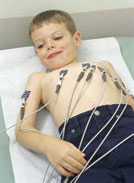 Sometimes children need to be assured that the ECG will not harm them. This machine does not pass current through the body. It only registers very weak electrical impulses from the beating heart and records them in the form of a zigzag curve on a moving paper tape. This is a graphic image of heart blows and is called an electrocardiogram.
Sometimes children need to be assured that the ECG will not harm them. This machine does not pass current through the body. It only registers very weak electrical impulses from the beating heart and records them in the form of a zigzag curve on a moving paper tape. This is a graphic image of heart blows and is called an electrocardiogram.
X-ray study gives information about the lungs of your child, as well as sizes and shape of his heart. It cannot cause any remote side effects. The amount of radiation emitted by the X-ray apparatus is negligible.
Echocardiography — This is a painless study without the use of needles. This uses a sensor emitting high-frequency sound waves to display the picture of the internal heart departments. The Doppler test uses sound waves to measure various parameters of blood flow (speed, directions, and T.D.). With the help of these studies, the doctor will find out about the structure and work of the heart.
Cardiology staff will talk with your child to prepare it for each of these procedures. In this case, the child will not be scared by strange unfamiliar devices. You should be aware of these procedures to answer your child's questions. Feel free to ask the cardiologist or child doctor.
After research and analyzes, your children's cardiologist will describe you the condition of the heart of the child. He will also discuss with you and your children's doctor with all the necessary treatment program, which includes checks, medicines and any restrictions of diet or physical activity.
In some cases, the first studies do not give sufficient grounds for the diagnosis. In this case, cardiologists can offer you to undergo special research in the hospital for final conclusion. These are complex procedures, so they should be performed in a well-equipped heart center with highly qualified specialists in the field of treating babies and children with heart disease.
If special research is impossible in the nearest medical institutions, your cardiologist, a pediatrician or family doctor can organize their holding for your child in another center.
Cathetterization of the heart
It is important for you to understand what is the catheterization of the heart and why it is needed. Then you can prepare a child for this study. If you have any questions, ask them to your children's cardiologist before talking about this study with a child.
You need to truthfully tell the children what will happen and how they can help. Explain that this procedure will allow you to identify the view and severity of heart disease.
In most cases, children are placed in the hospital per day or more to catheterization. Your child will examine several doctors and other specialists, he will need to pass electrocardiography, x-ray, doppler-zhocardiography, make blood tests and urine. One of their cardiologists will explain to you the details of catheterization and ask your consent to this procedure.
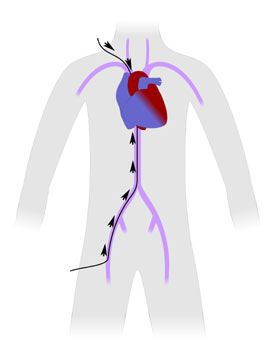 Within a few hours before the catheterization your child should not be given either, nor drink. Most likely, he or her will give a calming, after which the child will fall asleep and relax before the examination. A dropper can be installed in one of the veins.
Within a few hours before the catheterization your child should not be given either, nor drink. Most likely, he or her will give a calming, after which the child will fall asleep and relax before the examination. A dropper can be installed in one of the veins.
During the study with your child, nurses, doctors and technical staff will be engaged in. You will not be able to watch the child at this time. Everything will be done to prevent your child's concern and provide him with a feeling of comfort.
Usually this procedure causes a small discomfort in the place where the catheter is introduced (thin plastic tube). Most patients are sleeping throughout the survey.
During the procedure, the catheter is introduced into a vein or artery. While the cardiologist looks at the screen of a special X-ray apparatus, the catheter is slowly moving towards heart, a cardiologist can get information about the vice by studying blood samples and measuring blood pressure using a catheter.
During catheterization, a special fluid (dye or x-ray material) can be introduced into a blood vessel or heart chamber with a catheter. The moving x-ray image occurring is recorded on the film. This procedure is called «angiocardiography» and allows you to give the characteristic of the heart of the heart, sometimes heart defects in children can be cured in the process of catheterization. Methods of such treatment differ from each child, and you will tell you a cardiologist in advance.
After catheterization, the child will return to the ward and will sleep for several hours. A slight increase in body temperature or stomach disorder after catheterization — Conventional phenomena in a few hours. After catheterization, the doctor will tell you about the results. If the child's stay in the hospital is no longer required, it can be discharged in the evening of the same day or the next day.
After considering all the results of the survey, the cardiologist will give recommendations for the treatment of the child. If you need an operation, your cardiologist and children's cardiac surgeons will answer all your questions about the operation.


